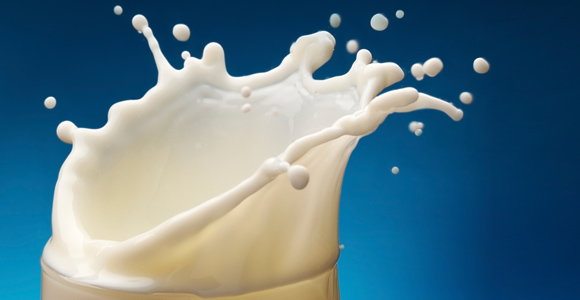The consumption of milk and dairy products has become a somewhat controversial topic in the last few decades. In order to make your own decision, the first task is to separate the facts from the hype. Does milk really do a body good?
The Basics
First, let's look at the basic facts on dairy farming in the United States. Conventional dairy farmers are permitted to give cows antibiotics and a synthetic hormone called recombinant bovine growth hormone (also known as rBGH or rBST). This is a protein hormone that exists naturally in cows, but synthetic versions are supplemented in order to increase milk production. While it is FDA-approved, the USDA estimated in 2010 that less than 20 percent of dairy farmers use the hormones. For certified organic farmers, these hormones are not permitted at all, and neither are antibiotics. Only organic feed is used, and cows must be able to feed from pastures for the full local grazing season.
On Calcium
Dairy products are the best source of calcium available to us from a food source. Calcium is necessary for the strength of bones and teeth, blood clotting, nerve transmission and muscle contraction (including the heart). Besides calcium, milk is a nutrient-dense beverage. It has high levels of protein, phosphorus, potassium and other vitamins and minerals.
Calcium is available from other sources, like whole sardines, kale and Chinese cabbage. However, the amount found in vegetable sources is about one-third lower per cup. For most Americans, it would be easier to have three cups of milk and yogurt rather than 10 cups of kale to meet the recommended amount of daily calcium. Many foods are now fortified with calcium, like soy milk, orange juice and some cereals. It is possible to get enough calcium without dairy products, but these supplemented products are usually necessary.
On Hormones
The hormones approved for dairy cows are actually specific to cows and therefore not active in humans. Further, about 90 percent of rBGH is destroyed in the pasteurization process, and the FDA maintains the amount in milk is not harmful to humans.
It is worth mentioning that the use of this hormone is banned in many countries, including the European Union, due to animal welfare concerns. Using rBGH has been shown to cause higher rates of udder infection (called mastitis), which in turn increases the use of antibiotics to treat it. It can also decrease fertility and increase hoof and inflammatory problems.
The issue for humans arises in the potential increase in another hormone (insulin-like growth factor) which is not species-specific and therefore our bodies do recognize it. Some studies have linked high levels of this growth factor to risk of cancers of the breast, colon and prostate; but there is more research needed for any definitive proof. The amount in milk is extremely low compared to the amount that we produce naturally in our bodies.
On Antibiotics
Because milk is an animal product, some of the milk that we drink will contain byproducts of what the cows themselves eat--and drugs they are given like antibiotics. Dairy cows treated with antibiotics have their milk dumped for a certain time to ensure the drugs are not passed into the milk supply. All milk is tested for the four to six most common antibiotics used and, if positive, the milk is destroyed. In organic farming, the cow is permanently removed from milk production, whereas in conventional farming cows return to the production line after some time.
The increased use of antibiotics does promote the development of antibiotic-resistant bacteria, but the extent to which this is transferred to humans is unknown. In the growing concern about antibiotic-resistant disease, this is a worry for consumers, some of whom switch to organic milk.
Other Issues
Another argument against drinking milk is that it increases mucous production. According to the Mayo Clinic, however, although milk may make it feel like mucous is thickened, it actually does not increase the amount produced.
Conventional livestock farming in general also has detrimental effects on the environment, producing 18 percent of greenhouse gases worldwide.
If you decide to do your own research on milk, make sure your information comes from credible sources, as the Internet is full of biased articles written on this topic.
How Much Protein Should You Really Be Eating?
Carolyn McAnlis, RDN, is a Registered Dietitian Nutritionist who has a special interest in preventing chronic disease through nutrition. She graduated from Syracuse University with a Bachelor of Science in Nutrition Science & Dietetics and a minor in Psychology. After completing a full-time dietetic internship at the University of Virginia Health System, she has developed a passion for convincing others that healthy food can be delicious through her blog A Dietitian in the Kitchen.




